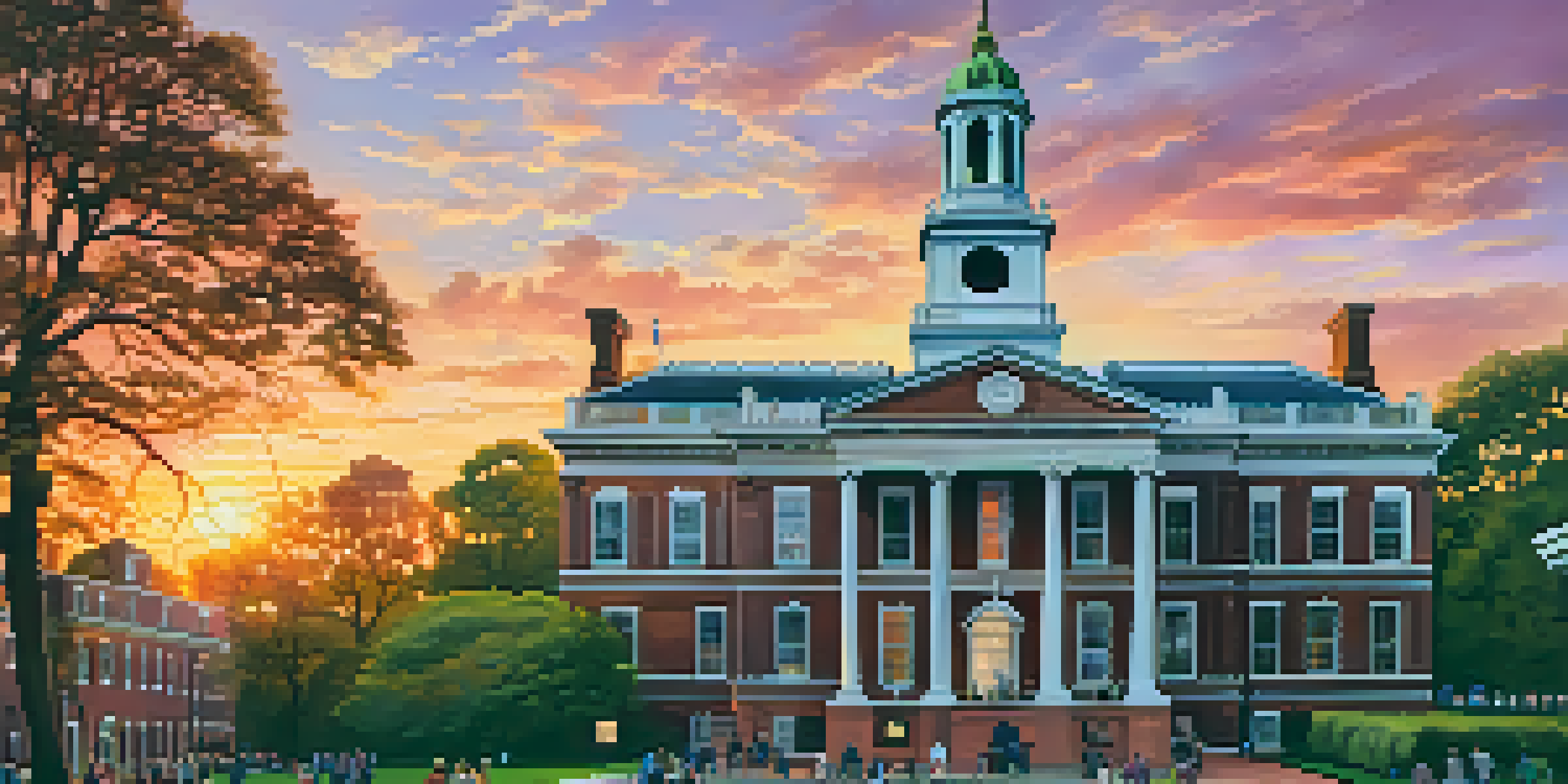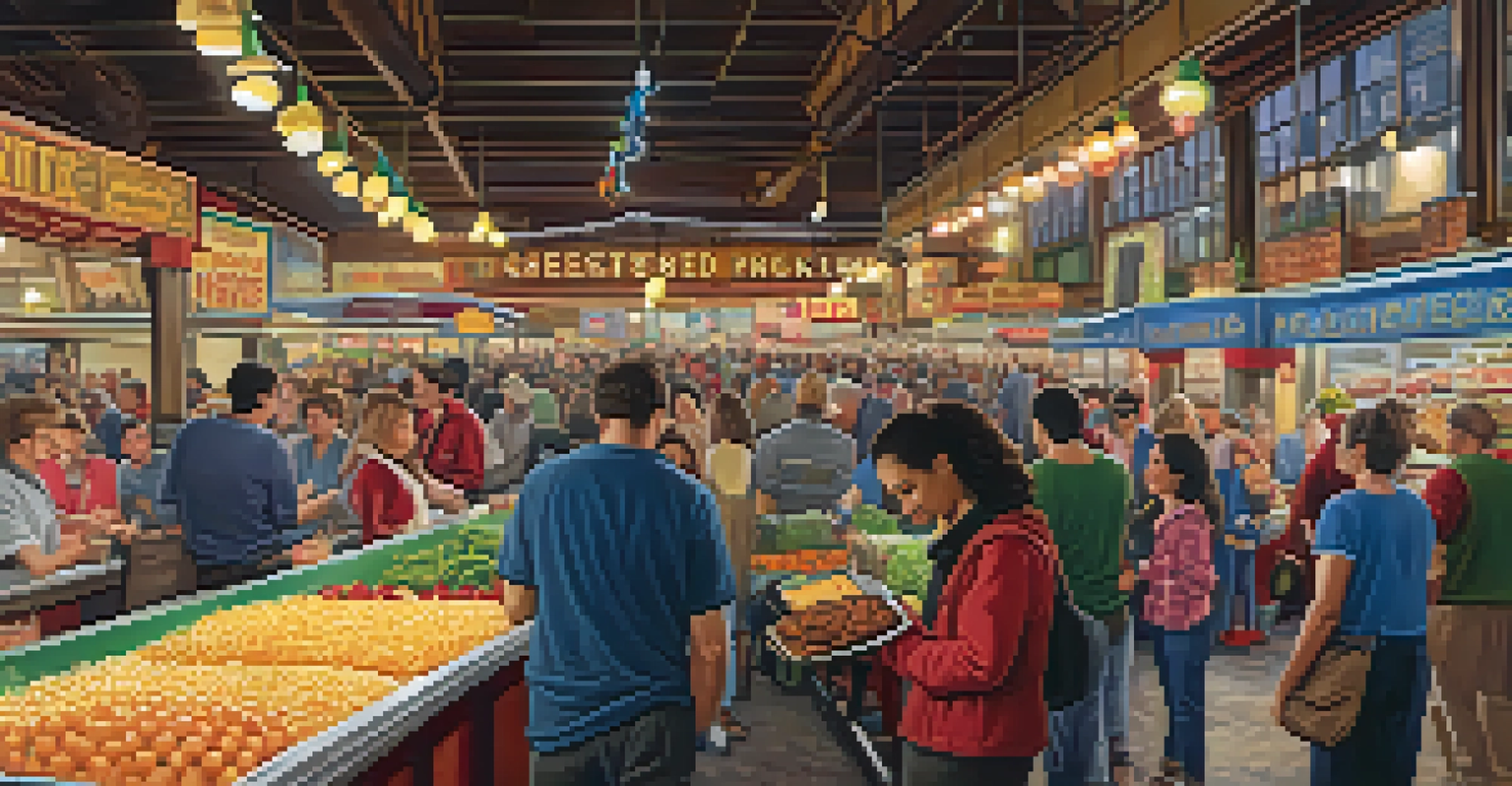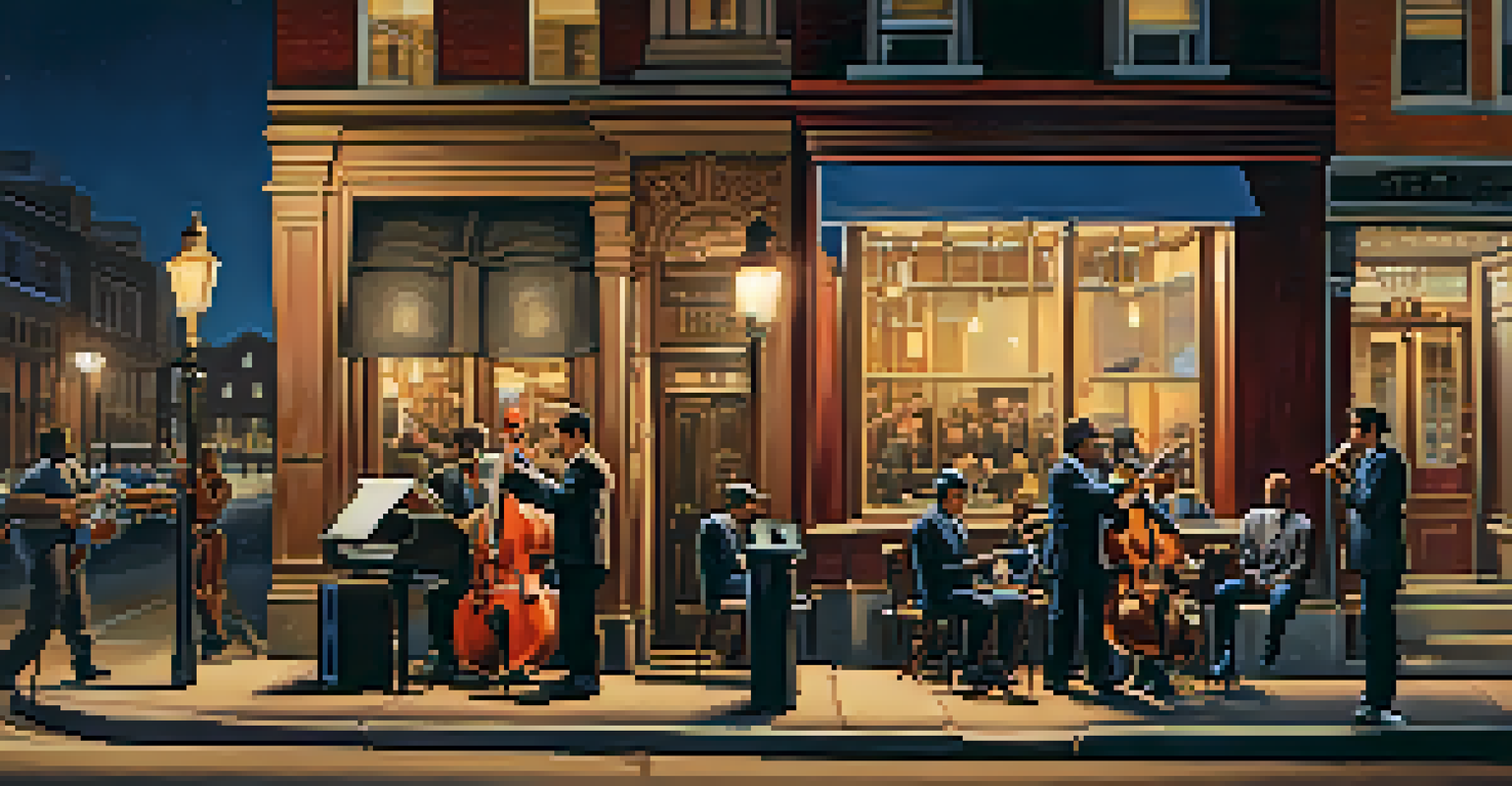Cultural Legacy of Philadelphia in the Early United States

The Birthplace of American Democracy: Philadelphia's Role
Philadelphia is often dubbed the birthplace of American democracy, hosting pivotal events like the signing of the Declaration of Independence in 1776. This city served as a melting pot of revolutionary ideas, where thinkers like Thomas Jefferson and Benjamin Franklin debated and shaped a new national identity.
Democracy is not a spectator sport.
The Continental Congress met in Independence Hall, which became a symbol of freedom and governance. It was here that the foundations for the United States Constitution were laid, marking Philadelphia as a key player in the nation’s early political landscape.
Thus, Philadelphia’s contribution to democracy is not just historical; it continues to influence political discussions today, reminding us of the importance of civic engagement and public discourse.
Philadelphia: The Cradle of American Arts and Culture
The cultural legacy of Philadelphia extends beyond politics to the arts. In the late 18th century, the city was home to a flourishing artistic community, with figures like Charles Willson Peale leading the charge in portrait painting and natural history.

Moreover, the establishment of the Pennsylvania Academy of the Fine Arts in 1805 marked a significant step in nurturing American artists. This institution has played a crucial role in promoting both established and emerging talents throughout history.
Philadelphia: Birthplace of Democracy
Philadelphia played a crucial role in shaping American democracy, hosting key events like the signing of the Declaration of Independence.
Today, Philadelphia’s vibrant arts scene is a testament to its historical roots, with numerous galleries, performances, and festivals that celebrate this rich cultural heritage.
The Legacy of Philadelphia's Educational Institutions
Philadelphia has long been recognized for its commitment to education, with institutions like the University of Pennsylvania, founded in 1740, leading the way. This university was among the first to offer a curriculum that included practical subjects, reflecting the city’s progressive spirit.
The arts are the bedrock of our democracy and a reflection of our society.
In addition to higher education, Philadelphia was also home to influential public schools and libraries, emphasizing the importance of knowledge as a cornerstone of society. This focus on education helped shape informed citizens who would go on to lead the nation.
The city’s educational legacy continues to thrive, as Philadelphia remains a hub for innovative learning and research, attracting students and scholars from around the globe.
Philadelphia's Role in American Literature
As a literary hub in the early United States, Philadelphia produced influential writers such as Edgar Allan Poe and Walt Whitman. The city provided a fertile ground for literary expression, with its rich history and diverse population inspiring countless works.
Publishing houses flourished in Philadelphia, making literature more accessible to the public. This democratization of literature helped cultivate a reading culture, allowing ideas and narratives to spread rapidly across the nation.
Cultural Hub of Arts and Cuisine
The city’s rich culinary and artistic heritage continues to thrive, making it a vibrant center for diverse cultural expressions.
Today, Philadelphia continues to celebrate its literary heritage through festivals, book fairs, and a vibrant community of contemporary writers, showcasing the ongoing impact of its literary past.
Culinary Heritage: Philadelphia's Impact on American Cuisine
Philadelphia’s culinary legacy is as rich as its history, with iconic dishes like the cheesesteak and soft pretzels becoming symbols of the city. The blending of various cultural influences led to a unique food culture that reflects the city’s diverse population.
Food markets, such as Reading Terminal Market, have long been a staple for locals and visitors alike, showcasing a variety of cuisines and local ingredients. These markets serve as a gathering place, fostering community and culinary creativity.
Philadelphia’s food scene continues to evolve, with chefs and restaurateurs drawing inspiration from the city’s historical roots while incorporating modern culinary trends, making it a vital player in the American culinary landscape.
Philadelphia's Influence on American Music and Performing Arts
Philadelphia has a vibrant music scene that has influenced genres like jazz, soul, and hip-hop. The city was home to legendary musicians such as John Coltrane and Billie Holiday, who left an indelible mark on American music.
The Philadelphia Orchestra, one of the oldest orchestras in the United States, has played a significant role in popularizing classical music and fostering appreciation for the arts. Its performances continue to attract audiences from around the world.
Educational Legacy and Innovation
Philadelphia's commitment to education, exemplified by institutions like the University of Pennsylvania, has fostered informed citizens and ongoing learning.
With a plethora of theaters and music venues, Philadelphia remains a dynamic stage for both emerging and established artists, ensuring its cultural influence endures.
Philadelphia's Historical Sites: A Window to the Past
The historical sites of Philadelphia, such as Independence Hall and the Liberty Bell, serve as powerful reminders of the city’s significant role in American history. These landmarks attract millions of visitors each year, eager to walk in the footsteps of those who shaped the nation.
Preservation efforts ensure that these sites maintain their integrity while allowing new generations to learn about the past. This connection to history fosters a sense of pride and responsibility among Philadelphians.

Ultimately, Philadelphia’s historical sites not only tell the story of the city but also the story of America itself, highlighting the ongoing journey toward liberty and justice.